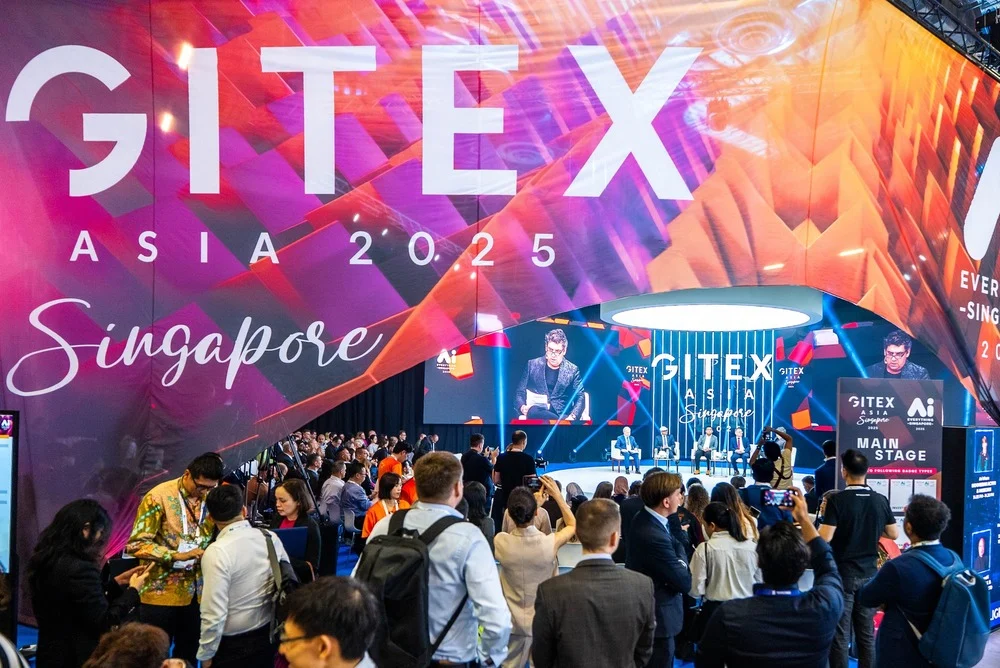GITEX Asia 2025, held from April 23 to 25 at the Marina Bay Sands Expo & Convention Centre in Singapore, marked a significant milestone in the region's technological advancement. As the inaugural Asian edition of the globally renowned GITEX event, it served as a convergence point for innovators, investors, and policymakers, emphasizing the burgeoning landscape of Southeast Asia tech innovation.
A Confluence of Global and Regional Tech Leaders
The event attracted over 1,000 global enterprises and startups, alongside more than 250 investors from over 60 countries. This diverse assembly underscored the region's growing appeal as a hub for technological development and investment. Notably, the participation of prominent figures such as Prof. Zhu Qiuguo, Founder & CEO of DEEP Robotics, and Caroline Guyot, Managing Director of ENGIE Factory, highlighted the event's international significance .
The conference featured multiple tracks, including the AI for Tomorrow Summit, Sustainable Smart Cities, and the Global Digital Forum, each delving into critical aspects of Southeast Asia tech innovation. These sessions facilitated in-depth discussions on emerging technologies and their applications in the regional context.
Showcasing Cutting-Edge Innovations
A significant highlight of GITEX Asia 2025 was the unveiling of groundbreaking technologies tailored to the Southeast Asian market. OceanDoc, an AI-powered office solution, introduced its full-stack document management system, integrating AI and blockchain technologies to enhance digital office operations .
Additionally, the event spotlighted the deployment of quadruped robots by DEEP Robotics for industrial applications, marking a first in the region. These innovations exemplify the strides being made in Southeast Asia tech innovation, particularly in integrating advanced technologies into practical solutions.
Empowering Startups and Entrepreneurs
GITEX Asia 2025 provided a platform for over 350 startups, with more than 40% participating in the region for the first time. This influx of new ventures signified the region's dynamic entrepreneurial spirit and the opportunities available for emerging businesses.
The event also featured a dedicated Startup Pavilion, facilitating interactions between startups and potential investors. This initiative aimed to foster collaborations and provide startups with the necessary exposure to scale their operations, further contributing to the ecosystem of Southeast Asia tech innovation.
Strategic Collaborations and National Participation
The involvement of national entities, such as the National Innovation Centre of Vietnam (NIC), which organized a national pavilion and "Vietnam Day," highlighted the strategic importance countries place on technological advancement. These national showcases aimed to promote local innovations and attract international partnerships, reinforcing the collaborative nature of Southeast Asia tech innovation .
Furthermore, the participation of Hong Kong Science & Technology Parks Corporation (HKSTP) and its delegation of 15 tech companies emphasized the cross-border collaborations essential for regional growth .
Addressing Regional Challenges and Opportunities
The conference also addressed the unique challenges faced by the region, such as infrastructure development, regulatory frameworks, and talent acquisition. Sessions focused on strategies to overcome these hurdles, with discussions on policy reforms, investment in education, and the creation of supportive ecosystems for innovation.
By tackling these issues head-on, GITEX Asia 2025 contributed to shaping a more conducive environment for Southeast Asia tech innovation, ensuring sustainable growth and competitiveness on the global stage.
Conclusion
GITEX Asia 2025 successfully positioned itself as a pivotal event in the technological landscape of Southeast Asia. By bringing together a diverse array of stakeholders, showcasing cutting-edge innovations, and addressing regional challenges, it played a crucial role in advancing Southeast Asia tech innovation.
As the region continues to evolve, events like GITEX Asia will remain instrumental in fostering collaboration, driving investment, and nurturing the next generation of technological advancements.
Read More






 Thursday, 12-02-26
Thursday, 12-02-26







